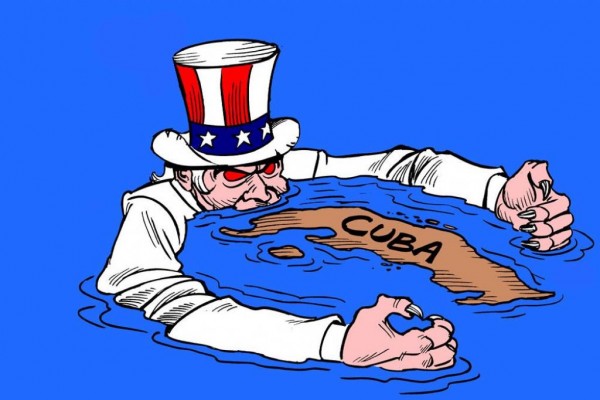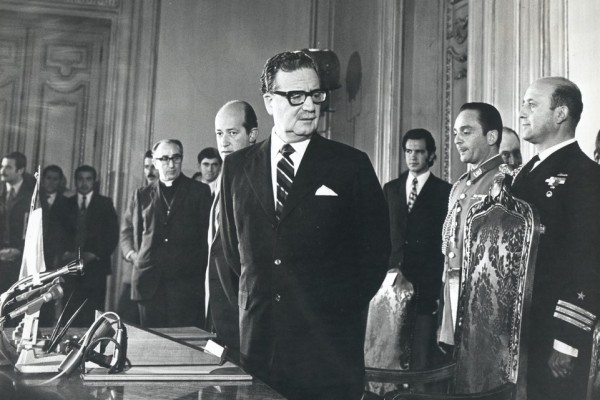Cuba Si!

Photo by Gorupdebesanez
For fifty years progressives, socialists and radicals from around the world have looked to Cuba as the place in which socialism might actually both survive and blossom in its magnificent possibilities. For this reason, Cuba also has to meet higher moral standards. We expect more from its revolutionary leaders because they (especially Fidel) have promised more. And they have delivered remarkably in health, education, social welfare and the blossoming of the arts and sciences.
Cuba’s socialist performance occurred amidst five decades of fierce hostility from Washington. Indeed, Cuba’s survival after the collapse of the Soviet Union – the island’s loss of trade and aid was incalculable – was a modern miracle. Building socialism and relying upon the U.S.S.R. – the only insurance company willing to underwrite Third World revolutions in the twentieth century – and fending off constant terrorist attacks and a fierce economic blockade also produced “security” policies that have restricted freedom.
“Without a contest of free opinions, life stagnates and withers in all public institutions, and the bureaucracy becomes the only active element,” the great socialist Rosa Luxemburg declared many years ago. In 2003, Cuba applied the death penalty – without an appeal process – to boat hijackers who had killed an official in the attempt. The incident occurred after a wave of similar boat-nappings.
Cuba’s friends groaned in pain. One would expect such a response from George W. Bush, who presided happily over 152 executions as governor of Texas. But popular revolutions should not resort to such barbaric methods. Thousands of people throughout the world echoed Uruguay writer Eduardo Galeano’s feeling.
“Cuba hurts,” he wrote.
Galeano, like many socialists, had made a principled investment in Cuba, and it pained him to see Cuba begin “to lose the spontaneity and freshness that marked its beginning.” A single Communist Party became necessary, perhaps, to accomplish the tasks of development. Unity, as Fidel constantly exhorted, became a principle not only of defense against U.S. aggression, but for bringing Cuba out of underdevelopment. After fifty years, friends of Cuba – friends tell each other what they think – can offer some reflections.
Cuba has repressed so-called dissidents, people with scant support except for the perks and privileges they obtain through their connection with the U.S. Interest Section in Havana. By suppressing them, Cuba’s leaders have given them undeserved status.
Cubans do debate the pressing themes of the day, but these discussions rarely appear in the press. Indeed, U.S. journalists have seized on Cuba’s state-run media to grab a moral high ground that it does not deserve. The U.S. press, inclined more toward stenography than critical reporting, rarely questions the moral authority of its own government, which has waged illegal wars (Iraq being only the latest) and ousted legitimate governments while deposing them in favour of military dictators (replacing Arbenz in Guatemala with military thugs and Allende in Chile with Pinochet and his assassins). The United States lecturing to Cuba on democracy is equivalent to the fox advising the hens on coop security.
Cubans have reason to feel proud of their revolutionary accomplishments. They have played important roles in world history, with Cuban troops helping bring down apartheid in South Africa and supporting the independence struggles of Angola and Namibia. Compare these with U.S. troops napalming and dropping Agent Orange and anti-personnel bombs on Vietnam. As U.S. armed forces today wreak havoc in Iraq and Afghanistan, Cuban medical personnel save lives and eyesight in poor countries.
Cuban artists, writers, musicians, scientists and athletes have etched their names in walls of accomplishment around the world. At home, Cubans still are unique among peoples of the developing world in enjoying key rights to health, education, housing, food and culture.
Perhaps the aging daddies and mommies of the Revolution will soon and confidently hand over the car keys to their middle-aged kids. Those revolutionary trustees can help realize their early visions of democracy, equality and justice by moving aside and allowing their ideological progeny to continue with the greatest socialist experiment ever made.
This article appeared in the March/April 2009 issue of Canadian Dimension (The Great Recession).










